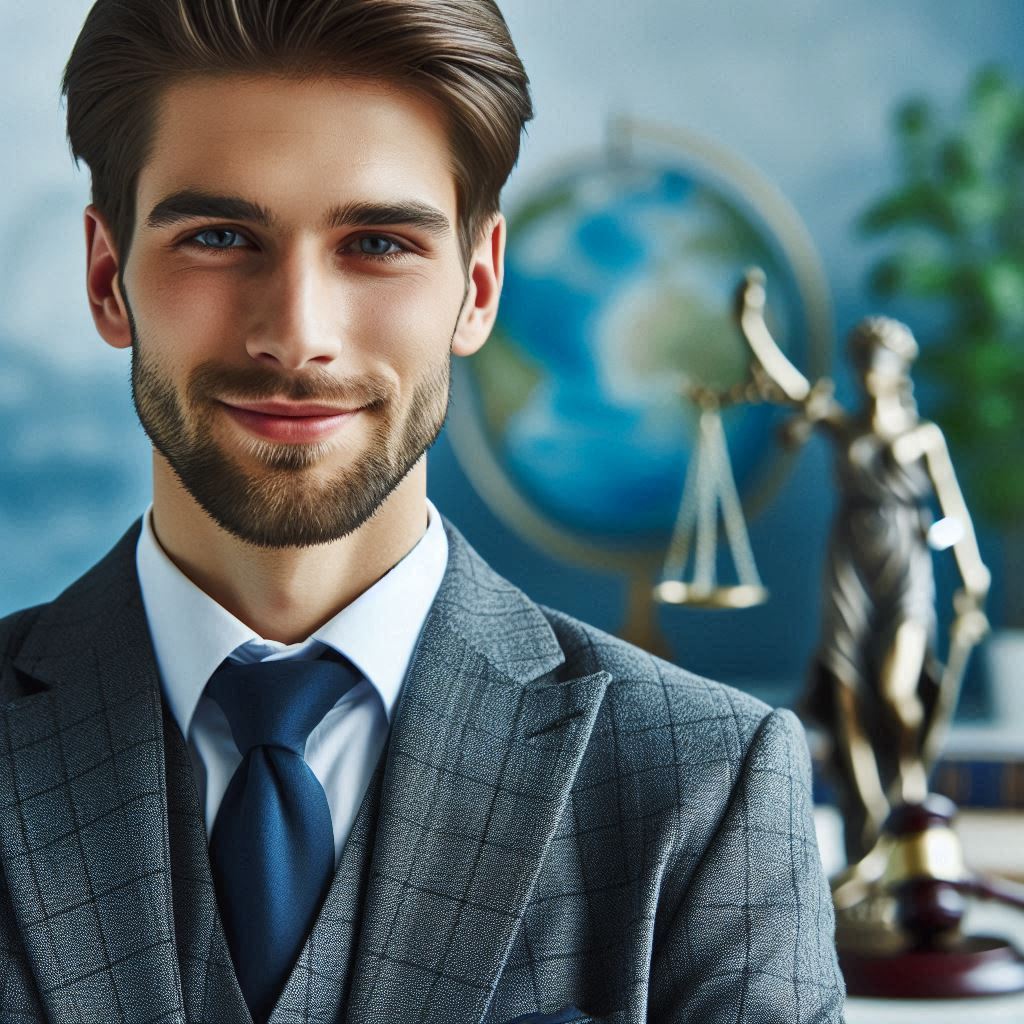Introduction
Human rights lawyers play a crucial role in safeguarding fundamental rights and freedoms in society.
As advocates for justice and equality, they face numerous challenges in their work today.‘
Human rights lawyers are essential in upholding the rule of law and holding governments and individuals accountable for human rights violations.
They provide legal representation to vulnerable individuals and groups, ensuring their voices are heard in the legal system.‘
One major challenge faced by human rights lawyers today is the increasing backlash against human rights norms and legal frameworks.
Some governments and authorities view human rights lawyers as threats to their power and seek to restrict their work through intimidation, harassment, and arbitrary arrests.‘
Another challenge is the lack of resources and support for human rights lawyers.
Many operate in hostile environments with limited funding, making it difficult to access legal resources, conduct investigations, and provide effective representation to their clients.‘
The digital age has also brought new challenges for human rights lawyers, such as cybersecurity threats and online surveillance.
Lawyers must navigate complex digital landscapes to protect sensitive information and ensure the safety of their clients and colleagues.‘
Additionally, the COVID-19 pandemic has exacerbated existing challenges for human rights lawyers, including restricted access to courts, limitations on freedom of movement, and increased risks to their health and safety.
In fact, human rights lawyers play a critical role in advancing justice and equality, but they face numerous challenges in fulfilling their duties.
It is essential to support and protect human rights lawyers in their important work to uphold human rights for all.
Lack of resources
The inadequate funding and support for human rights organizations and lawyers
Human rights lawyers are often at the forefront of advocating for justice and equality, yet their work is frequently hampered by a critical issue: lack of resources.
Inadequate funding and support for human rights organizations and lawyers can significantly impede their ability to perform their vital roles effectively.
How limited resources can hinder their ability to effectively carry out their work
Limited financial resources constrain these lawyers’ capacity to conduct comprehensive investigations, gather evidence, and mount robust legal defenses.
For instance, in regions with ongoing conflicts or oppressive regimes, the scarcity of funds means that essential tasks, such as securing expert testimonies or accessing legal databases, become prohibitively expensive or impossible.
This can result in weaker cases and, ultimately, fewer victories in the fight for human rights.
In many countries, especially those with emerging democracies or authoritarian governments, human rights lawyers often operate under severe financial strain.
For example, in parts of Africa and Latin America, funding shortages force organizations to reduce their scope of work, leaving numerous human rights abuses unaddressed.
Transform Your Career Today
Unlock a personalized career strategy that drives real results. Get tailored advice and a roadmap designed just for you.
Start NowThis lack of support not only affects the quality of legal representation but also impacts the morale and sustainability of the organizations involved.
Examples of how this challenge impacts human rights lawyers in different regions
Moreover, the financial challenges extend to the lawyers themselves, who may struggle with low salaries and inadequate resources for their work.
This can lead to high turnover rates and burnout, further diminishing the effectiveness of human rights advocacy.
Addressing these challenges requires a concerted effort from international communities, philanthropic organizations, and governments to provide consistent and adequate funding.
Without such support, the critical work of human rights lawyers remains severely compromised, jeopardizing the protection and promotion of fundamental human rights globally.
Read: How Family Law Facilitators Help in Property Division
Government interference and repression
Human rights lawyers often find themselves at the forefront of justice, but their pursuit of truth frequently puts them at odds with powerful government entities.
Governments that wish to obscure human rights abuses often target these advocates as a means to suppress dissent and maintain control.
How governments often target human rights lawyers for their work in exposing human rights abuses
Government interference manifests in various forms, from overt repression to subtle harassment.
In authoritarian regimes, human rights lawyers may face direct threats, including arrest and imprisonment.
These actions serve not only to punish individuals but also to deter others from challenging the status quo.
For example, in countries like Belarus and Myanmar, lawyers advocating for political prisoners have been detained, tortured, or disappeared.
Such extreme measures illustrate the lengths to which some governments will go to silence critics.
The various tactics used by governments to intimidate, harass, and silence human rights lawyers
More covert tactics are also employed.
Governments may employ surveillance to monitor human rights lawyers’ communications and activities, aiming to uncover and undermine their work.
Harassment can extend to family members, who may be targeted to exert psychological pressure on the lawyers.
In Russia, human rights advocates have reported state-sponsored harassment, including threats and physical attacks designed to intimidate and disrupt their efforts.
Specific cases where human rights lawyers have faced government repression
Noteworthy cases highlight these issues vividly.
The murder of Saudi journalist Jamal Khashoggi in 2018, although primarily targeting journalism, also reflected broader patterns of government repression against those who criticize or expose human rights violations.
Similarly, the ongoing persecution of Chinese human rights lawyer Gao Zhisheng, who has faced severe mistreatment and imprisonment, underscores the brutal consequences faced by those challenging authoritarian practices.
In confronting these challenges, human rights lawyers demonstrate extraordinary bravery, often at great personal risk.
Their resilience in the face of government repression is crucial for advancing justice and human rights globally, even in the harshest of environments.
Read: Essential Skills for a Successful Human Rights Lawyer
Physical threats and security risks
The physical dangers that human rights lawyers face in their line of work
Human rights lawyers often face a perilous landscape fraught with physical threats and security risks.
Their commitment to justice and the protection of human rights frequently puts them in direct opposition to powerful adversaries, including oppressive governments, criminal organizations, and extremist groups.
This confrontation can manifest in various forms of violence, threats, and even assassinations.
Instances of violence, threats, and even assassinations targeting human rights lawyers
Instances of violence against human rights lawyers are not uncommon.
In recent years, numerous lawyers have been targeted for their work, from bombings to physical assaults.
The murder of prominent figures such as lawyer Berta C‘ceres in Honduras and others worldwide illustrates the extreme risks associated with advocating for human rights.
These attacks aim to silence critics and instill fear within the legal community, underscoring the inherent dangers of their profession.
The psychological toll that constant security risks can have on human rights lawyers
The psychological toll of these constant threats is profound.
The ever-present danger can lead to chronic stress, anxiety, and depression, impacting lawyers‘ mental health and overall well-being.
The fear of being targeted not only affects their personal safety but also their ability to perform their duties effectively.
This ongoing threat can erode confidence, impair concentration, and diminish the quality of legal advocacy.
Despite these challenges, human rights lawyers persist in their crucial roles, driven by their commitment to justice.
Their resilience in the face of such risks highlights their dedication to protecting the most vulnerable and advocating for fundamental human rights.
Addressing these threats requires robust security measures, international support, and a concerted effort to ensure that those who stand for justice can do so without fear for their lives.
Read: Differences Between Family Law Facilitators and Paralegals

Legal challenges and restrictions
Human rights lawyers play a crucial role in advocating for justice and equity, but their work is increasingly obstructed by a range of legal challenges and restrictions.
These obstacles significantly hinder their ability to defend human rights and hold violators accountable.
The legal obstacles that human rights lawyers encounter in their advocacy work
One primary legal challenge is the imposition of restrictive laws and regulations.
In many jurisdictions, governments have enacted laws that limit the activities of human rights organizations and their legal representatives.
For instance, “foreign agent” laws require NGOs receiving international funding to register as foreign agents, stigmatizing them and creating bureaucratic hurdles that divert resources away from human rights work.
Such laws can also lead to increased surveillance and harassment of both organizations and their legal teams.
Another significant restriction is the implementation of overly broad anti-terrorism laws.
These laws often include vague definitions of terrorism that can be used to target human rights advocates.
For example, in some countries, laws that criminalize “subversive activities” are used to prosecute those who criticize government policies or report on human rights abuses.
This creates an environment where speaking out or defending human rights can be seen as a threat to national security, leading to legal repercussions for lawyers and their clients.
How restrictive laws and regulations can limit their ability to defend human rights
Moreover, legal barriers such as restrictions on freedom of assembly and expression directly impact human rights lawyers.
In certain regions, protest laws and media censorship can prevent lawyers from organizing public demonstrations or disseminating information about human rights violations.
This limits their ability to mobilize public opinion and gain support for their causes.
Examples of specific laws or policies that hinder the work of human rights lawyers
Specific examples highlight these challenges.
In Russia, the “undesirable organizations” law has led to the dissolution of numerous NGOs and restricted their ability to operate freely.
Similarly, in Egypt, anti-protest laws have stifled dissent and made it perilous for human rights lawyers to advocate for reform.
These legal barriers not only obstruct the work of human rights lawyers but also undermine the broader quest for justice and human rights.
As such, addressing these challenges is essential for ensuring that human rights advocacy can continue to thrive in the face of adversity.
Read: How to Become a Human Rights Lawyer in the USA
Lack of access to justice
The challenges that human rights lawyers face in accessing justice for their clients
Human rights lawyers often grapple with significant obstacles when striving to secure justice for their clients.
One major challenge is the lack of access to justice, which severely hampers their ability to advocate effectively.
Barriers such as corruption, discrimination, and lack of accountability in legal systems
Corruption is a pervasive issue, undermining the integrity of legal systems and impeding the pursuit of justice.
In many regions, bribery and nepotism distort judicial processes, making it nearly impossible for human rights lawyers to navigate the system impartially.
This corruption can result in unfair trials, wrongful convictions, and the perpetuation of human rights abuses.
Discrimination is another barrier that human rights lawyers encounter.
Legal systems in some countries are biased against marginalized groups, including ethnic minorities, women, and LGBTQ+ individuals.
This systemic prejudice often translates into legal obstacles that obstruct efforts to challenge injustices and advocate for equal rights.
Human rights lawyers must navigate these prejudices while attempting to provide equitable representation for their clients.
Lack of accountability within legal systems further exacerbates these challenges.
When there are no mechanisms to hold perpetrators of human rights abuses accountable, human rights lawyers struggle to obtain redress for their clients.
This lack of accountability not only frustrates legal efforts but also contributes to a culture of impunity, where violations of rights continue unchecked.
The impact of limited access to justice on human rights lawyers and their clients
The impact of limited access to justice on human rights lawyers and their clients is profound.
Lawyers face emotional and professional strain as they contend with systemic obstacles that undermine their efforts.
For clients, the inability to achieve justice can lead to prolonged suffering, diminished trust in legal institutions, and a sense of helplessness.
In essence, the lack of access to justice poses formidable challenges for human rights lawyers.
Addressing issues such as corruption, discrimination, and lack of accountability is crucial for improving the efficacy of human rights advocacy and ensuring justice for those in need.
Stigmatization and ostracization
Examine how human rights lawyers are often stigmatized and marginalized for their work
Human rights lawyers play a crucial role in advocating for justice and protecting the rights of marginalized communities.
Despite their vital contributions, these professionals frequently encounter stigmatization and ostracization, which pose significant challenges to their work.
Stigmatization of human rights lawyers often stems from their association with controversial issues or oppressive regimes.
In some societies, advocating for the rights of dissenters, minorities, or victims of abuse can lead to public and governmental backlash.
This negative perception may manifest as verbal attacks, negative media portrayals, or even legal repercussions.
The social consequences that human rights lawyers may face, such as isolation and discrimination
The social consequences of such stigmatization are profound.
Human rights lawyers may experience isolation from their peers and communities, facing discrimination in their professional and personal lives.
This can lead to mental health struggles, such as stress and burnout, which further complicate their ability to perform effectively.
Strategies for addressing and combating stigma against human rights lawyers
To combat this stigma, several strategies can be employed. Building strong, supportive networks is essential.
Human rights organizations, legal associations, and advocacy groups can provide solidarity and resources, helping to counteract the negative effects of stigmatization. Public awareness campaigns are also crucial.
By educating the public about the importance of human rights work and the challenges faced by these professionals, misconceptions can be addressed and reduced.
Additionally, fostering international support can be effective.
Collaboration with global human rights bodies and international legal institutions can offer protection and amplify the voices of those under threat.
Therefore, while stigmatization and ostracization present significant challenges for human rights lawyers, strategic support, public education, and international solidarity can help mitigate these issues and reinforce the essential work these advocates do.
Burnout and self-care
Human rights lawyers are often on the front lines of advocating for justice, equality, and human dignity.
However, the demanding nature of their work can lead to significant burnout.
The relentless pressure of handling emotionally charged cases, long hours, and the constant exposure to human suffering takes a toll on their mental and physical health.
The issue of burnout among human rights lawyers due to the demanding nature of their work
Burnout among human rights lawyers is a growing concern.
It manifests as emotional exhaustion, depersonalization, and a reduced sense of personal accomplishment.
These symptoms can affect job performance, lead to mental health issues, and ultimately impact their ability to serve their clients effectively.
The importance of self-care and mental health support for human rights lawyers
Self-care is not a luxury but a necessity for sustaining a long and impactful career in human rights law.
Prioritizing mental health is crucial. Lawyers should consider establishing a routine that includes regular breaks, exercise, and time away from work.
Engaging in activities that bring joy and relaxation can help mitigate the effects of stress.
Tips and resources for human rights lawyers to prioritize their well-being and avoid burnout
Accessing mental health support is also vital.
Many organizations offer Employee Assistance Programs (EAPs) that provide counseling and resources.
Peer support groups within the legal community can offer a sense of camaraderie and understanding.
It’s important for lawyers to reach out for help when needed and to foster a supportive work environment.
Practical tips for managing burnout include setting clear boundaries between work and personal life, practicing mindfulness and stress-relief techniques, and seeking professional guidance when necessary.
By implementing these strategies, human rights lawyers can better manage the demands of their profession and maintain their well-being, ultimately enhancing their capacity to continue their vital work in the pursuit of justice.
Collaboration and advocacy strategies
The importance of collaboration and networking among human rights lawyers to address common challenges
Human rights lawyers face numerous challenges in their daily work, from threats to their safety and well-being to lack of resources and support.
In order to address these challenges effectively, collaboration and networking among human rights lawyers are essential.
By working together, lawyers can share information, resources, and best practices, ultimately strengthening their ability to protect human rights.
Effective advocacy strategies for human rights lawyers to advance their cause and protect human rights
Effective advocacy strategies play a crucial role in advancing the cause of human rights lawyers.
Advocacy involves raising awareness about human rights issues, engaging with policymakers and the public, and using legal tools to bring about positive change.
Human rights lawyers can use various advocacy techniques, such as litigation, lobbying, and public campaigns, to promote human rights and hold perpetrators accountable.
Successful examples of collective action and solidarity among human rights lawyers
Successful examples of collective action and solidarity among human rights lawyers demonstrate the power of working together to achieve common goals.
For instance, human rights lawyers around the world have joined forces to challenge oppressive laws, defend marginalized communities, and push for legislative reform.
Through collective action, lawyers can amplify their voices, increase their impact, and create lasting change.
Gain More Insights: Average Salary and Benefits of Legal Consultants in America
Conclusion
Human rights lawyers today face numerous challenges that hinder their ability to uphold justice and protect the vulnerable.
From threats to their safety and security to lack of resources and support, these professionals navigate a complex landscape in their pursuit of justice.
It is crucial to recognize the importance of supporting and protecting human rights lawyers in their crucial work.
Without their dedication and commitment, many individuals would be left without a voice and without access to justice.
They play a vital role in holding perpetrators accountable and advocating for those who cannot speak for themselves.
Therefore, it is imperative that we, as a global community, take action and advocate for the rights and safety of human rights lawyers worldwide.
By raising awareness, providing resources, and standing in solidarity with these brave individuals, we can ensure that they can continue their essential work without fear of persecution or reprisal.




